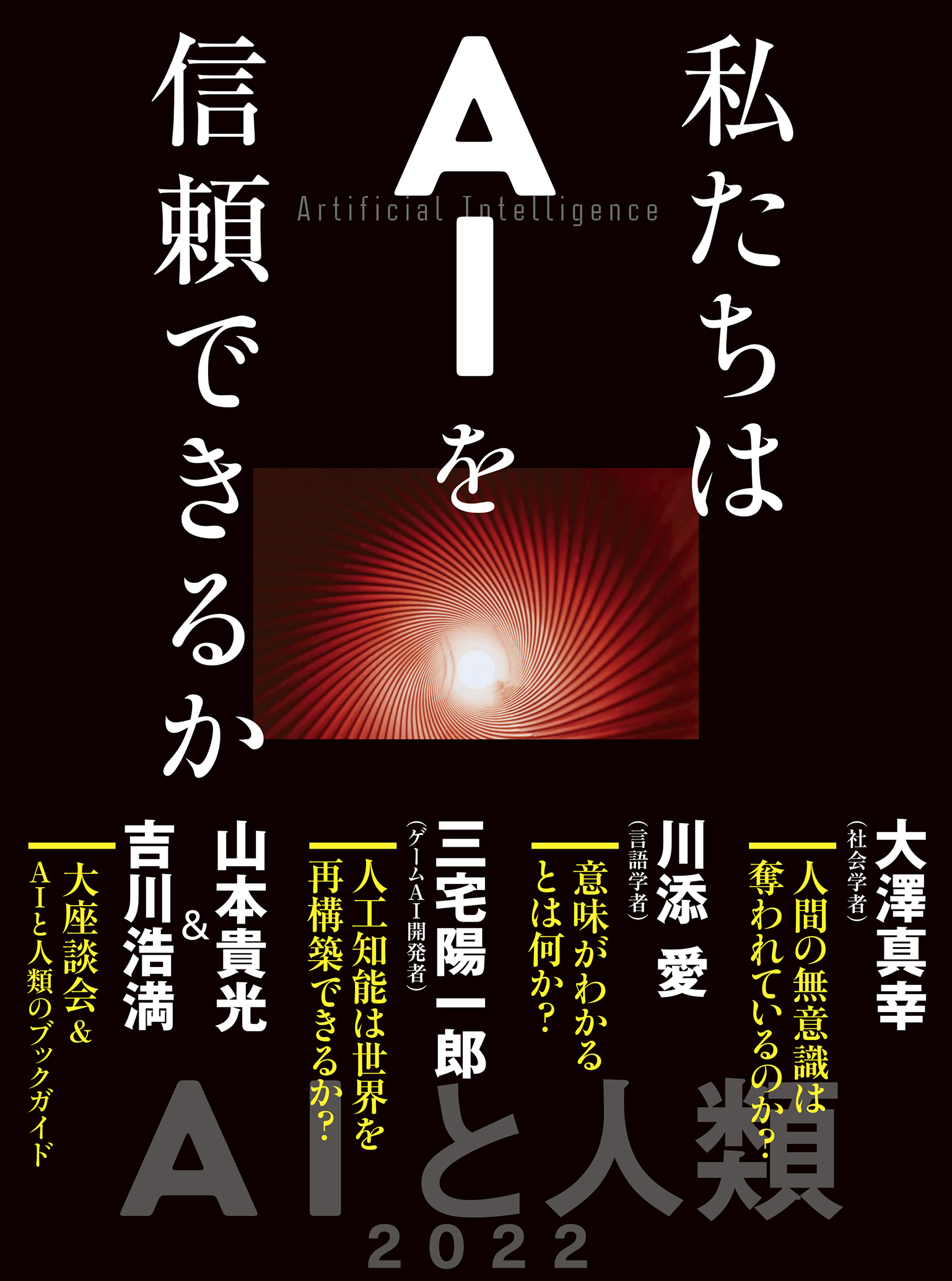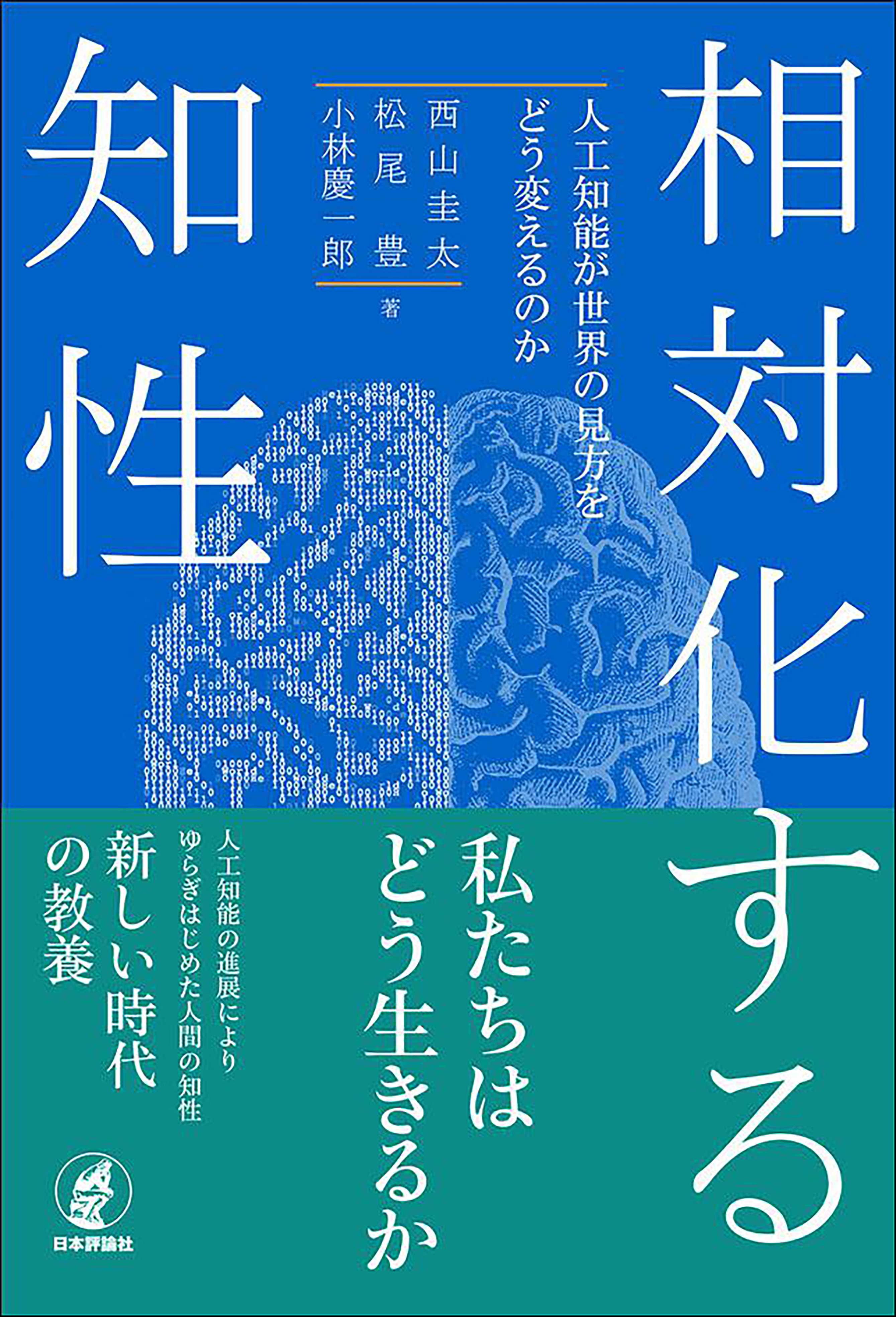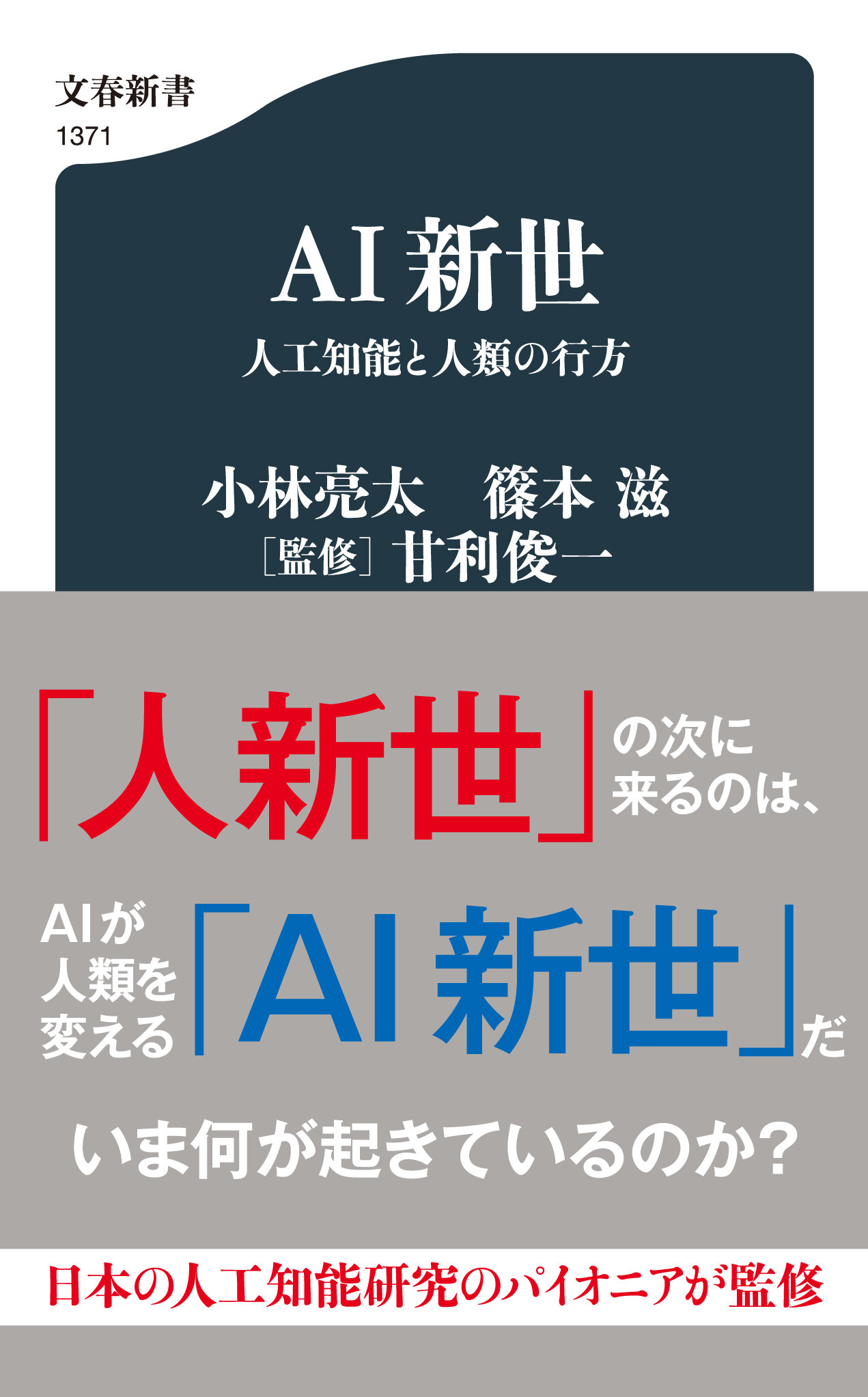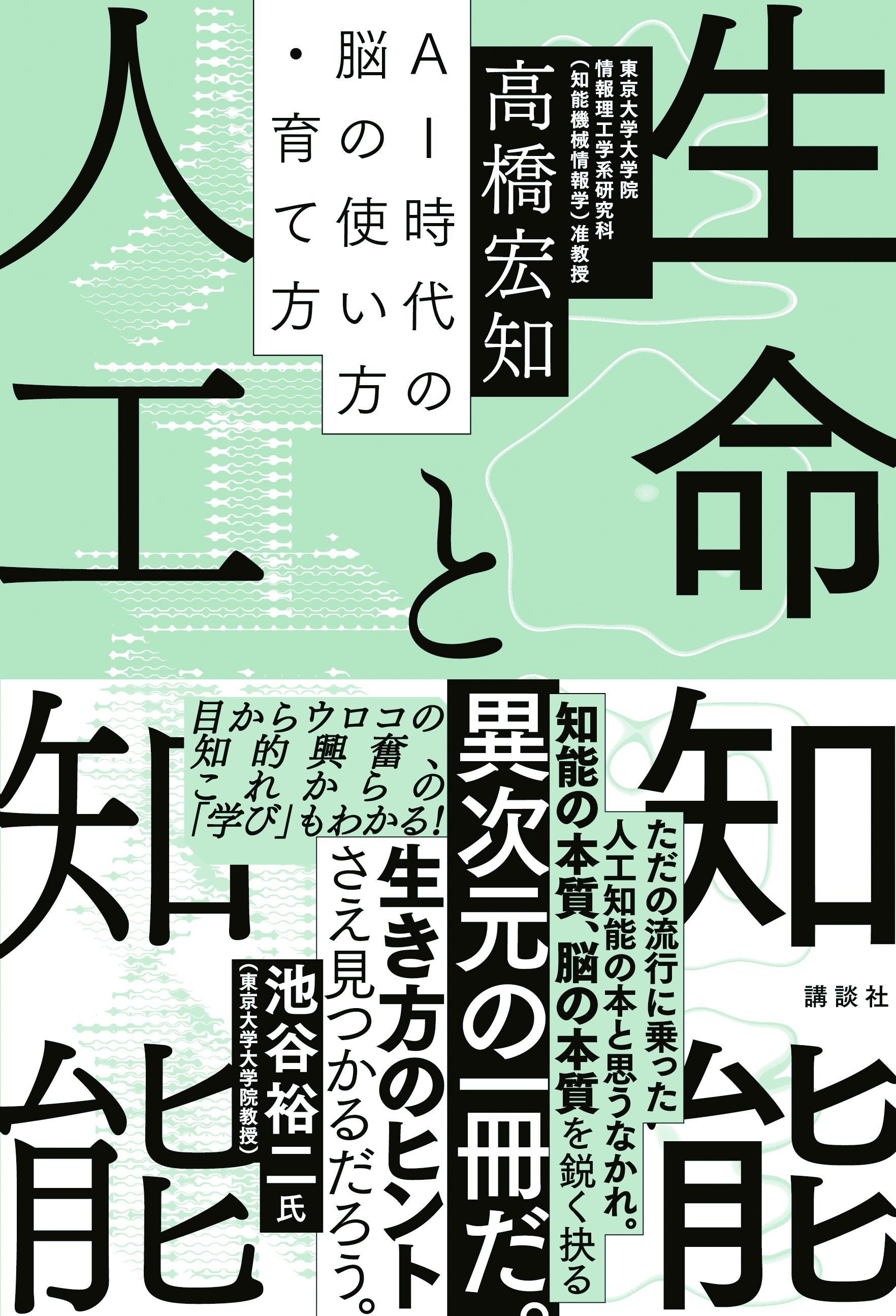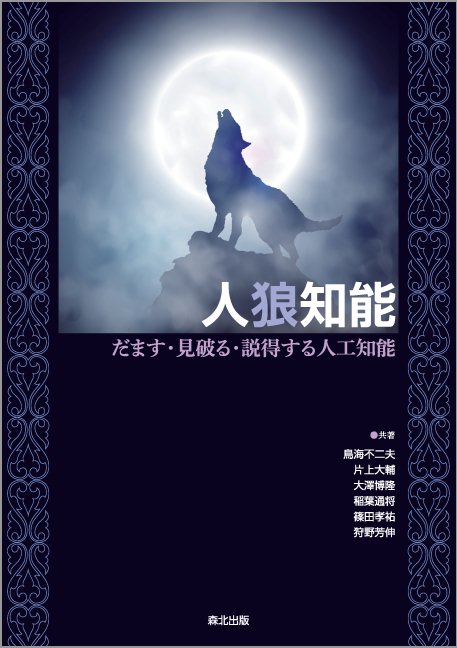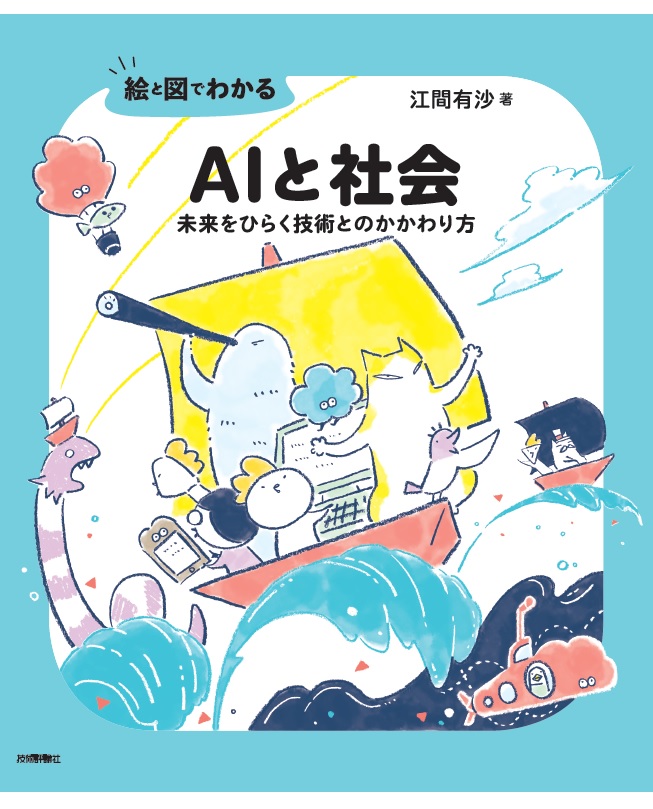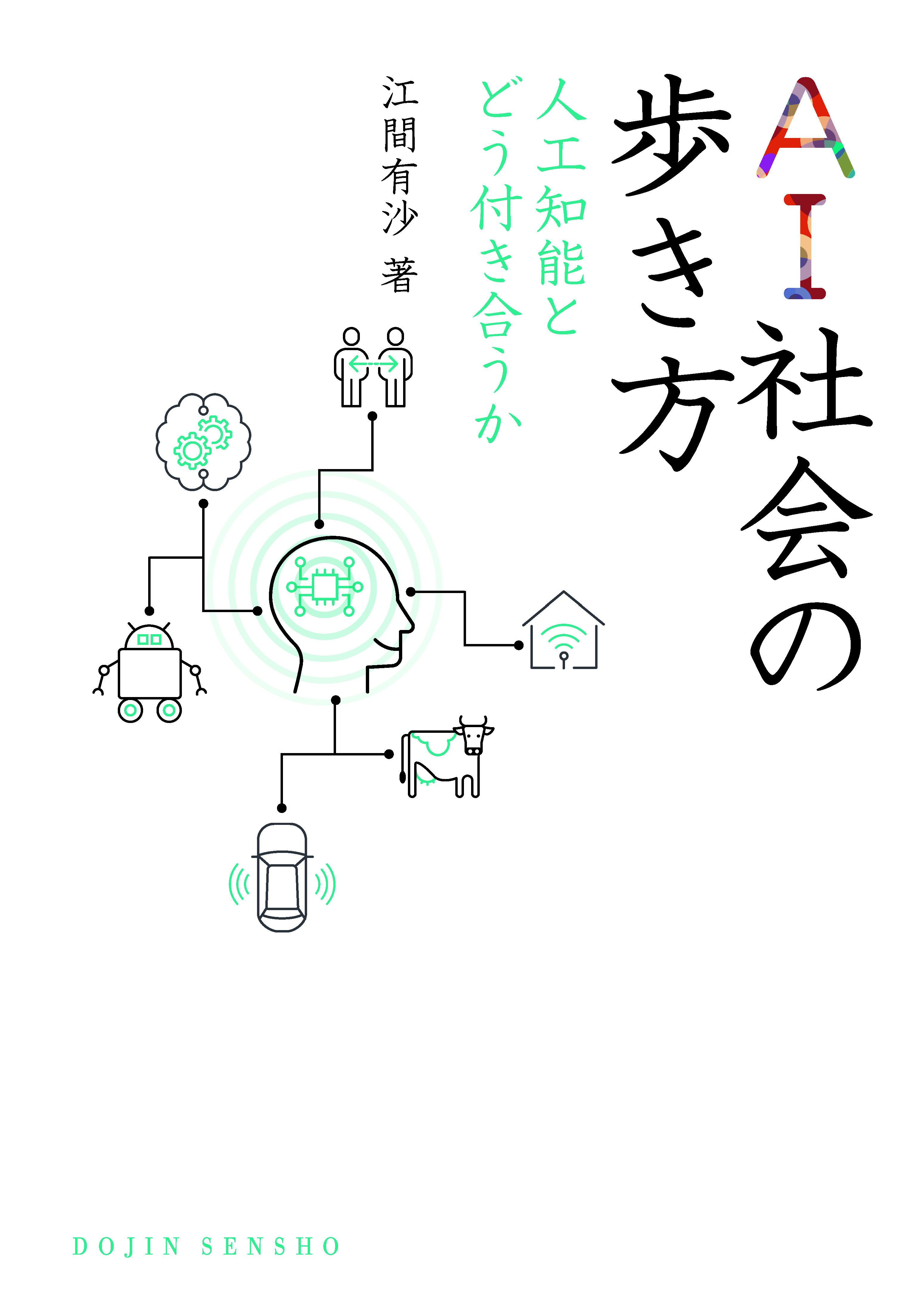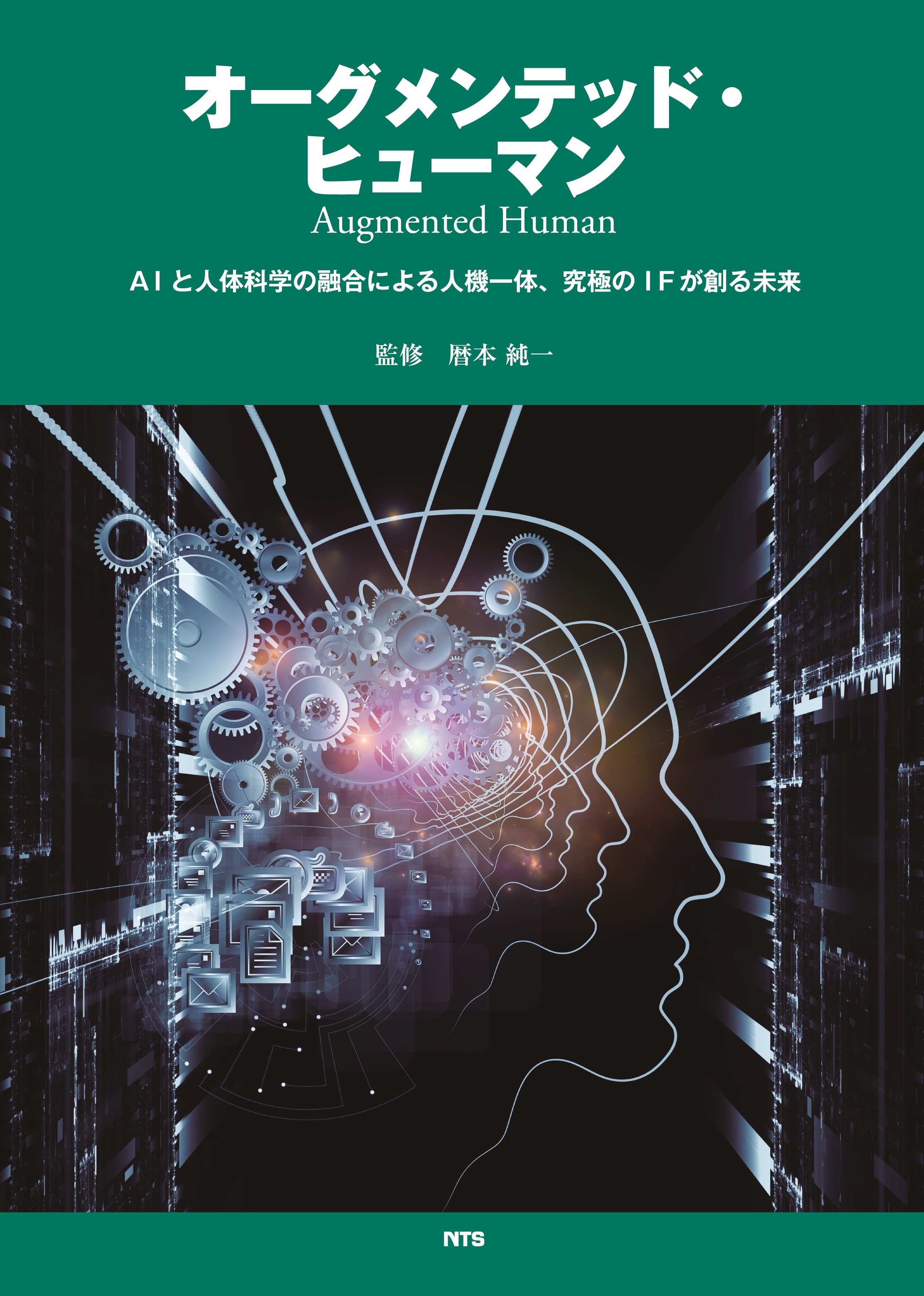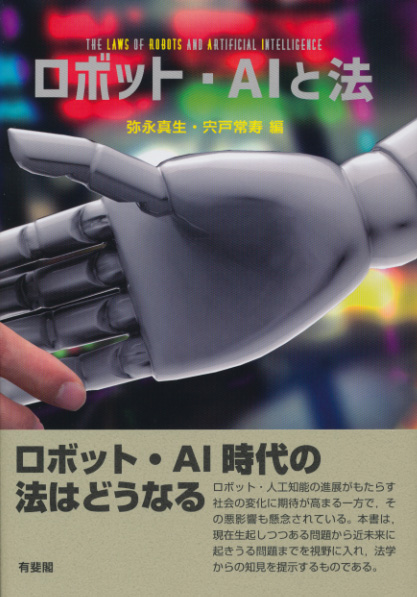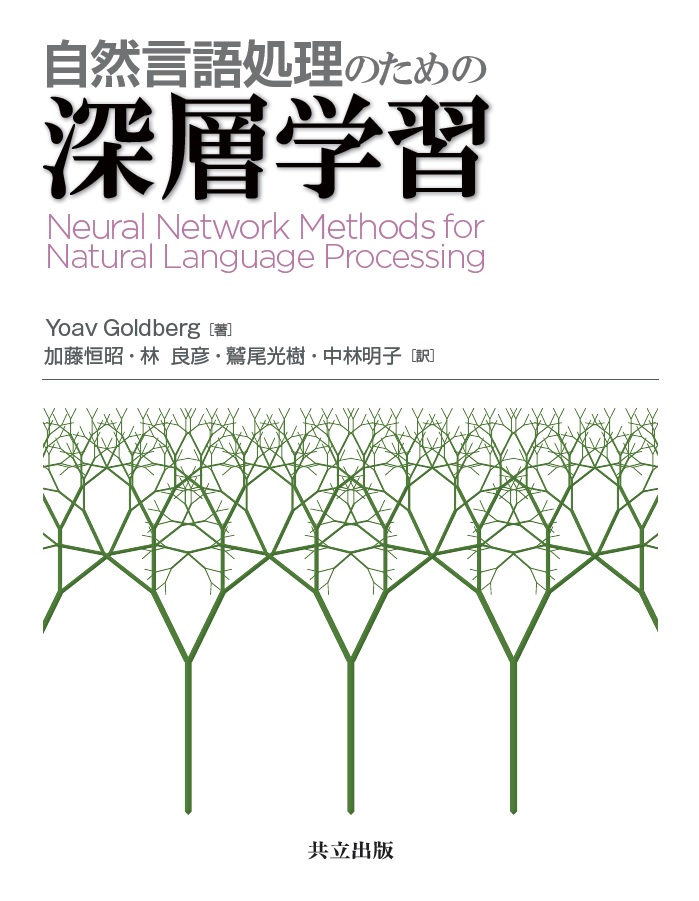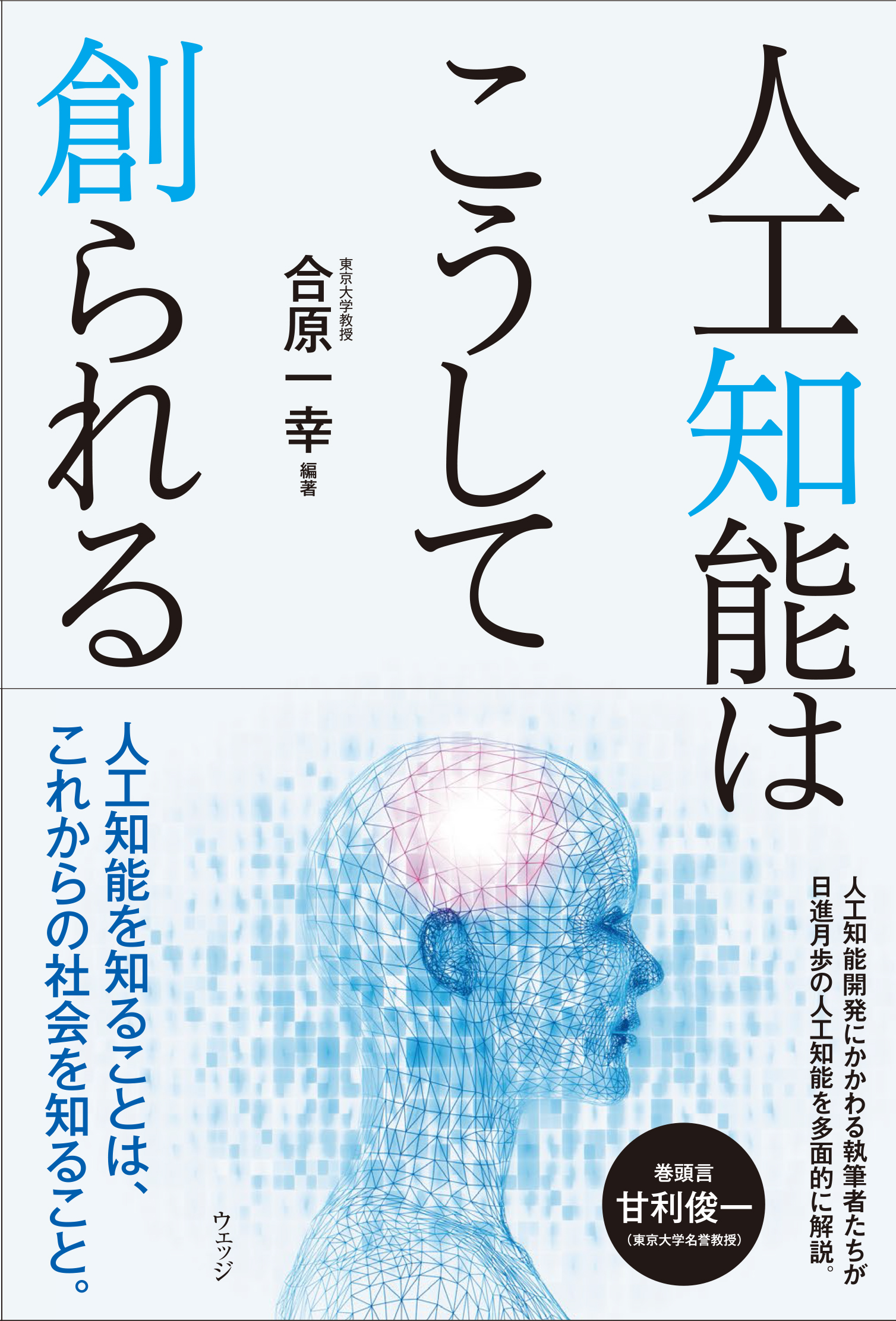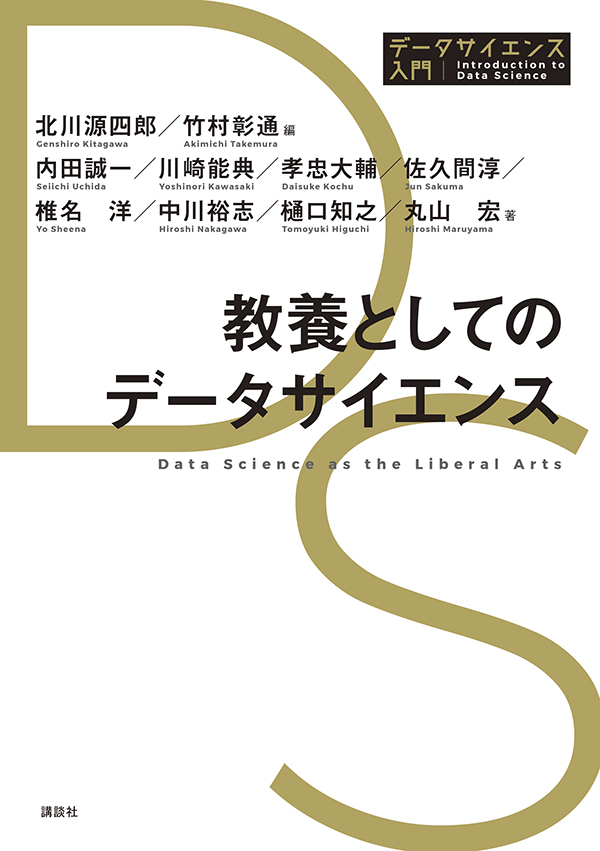
Title
Jinko Chino wa Ningen wo Koeruka (Will artificial intelligence exceed human performance? What lies ahead in deep learning)
Size
264 pages, B6 format
Language
Japanese
Released
March 09, 2015
ISBN
9784040800202
Published by
KADOKAWA/Chukei Publishing Company
Book Info
See Book Availability at Library
Japanese Page
Deep in the study of artificial intelligence lie two things: The fundamental question of, “What is this self that recognizes the world and thinks?” and a trust in the infinite possibilities of computers. When we die, the recognizing self no longer exists, and while this itself is very strange and such a phenomenon somehow cannot but be considered only from a “third party” viewpoint, the limits of our cognitive abilities as humans are also felt at the same time. The fact that such a cognitive mechanism is not yet understood even in modern science gives us, as researchers, a feeling of excitement, similar to the feeling of holding on to one’s favorite cake and not being able to eat it. Accordingly, thoughts evolve whether such a huge mystery in the history of mankind can be unlocked by applying synthetic theory and utilizing the infinite possibilities of computer mechanisms.
The flow of such research at times can generate a boom that engulfs society. Artificial intelligence as an expression possesses a mysterious charm and a sense of omnipotence. This has generated several booms in the past 60 years in synchronization with societal expectations. Looking back at the history of research, the field of artificial intelligence, without being able to solve the problem of “how to obtain features,” one of the most fundamental problems of knowledge, actually has developed in a distorted manner as an academic field in the form of “atypical development” and has progressed that way thus far.
However, a breakthrough has finally occurred. It is deep learning, a technique for obtaining features or expressions, or, in other words, the emergence of technology whereby the parameters of “deep (hidden) functions” are learned from data. Its significance is remarkable. However, this fact may not be sufficiently comprehended without knowing the atypical developmental history of artificial intelligence spanning 60 years.
This book, traversing the history of artificial intelligence, illustrates the circumstances wherein, during its struggles and its difficulties as a research field, at times it gained attention, and at times it was abandoned. The authors point out that this struggle is perhaps the most difficult problem in artificial intelligence. It is essentially the problem of discovering its features. In this book, it is stated that this problem is about to be solved by deep learning, and, as a consequence, artificial intelligence is likely to make great progress, because the current boom, at least with the hindsight of history, appears to be “genuine” and should be believed. The author hopes that the book will appropriately convey the depth and fun of artificial intelligence and the intellectual excitement that the “things lying ahead of deep learning” may finally unlock humanity’s greatest mystery.
(Written by MATSUO Yutaka, Project Professor, School of Engineering / 2018)



 Find a book
Find a book


 eBook
eBook